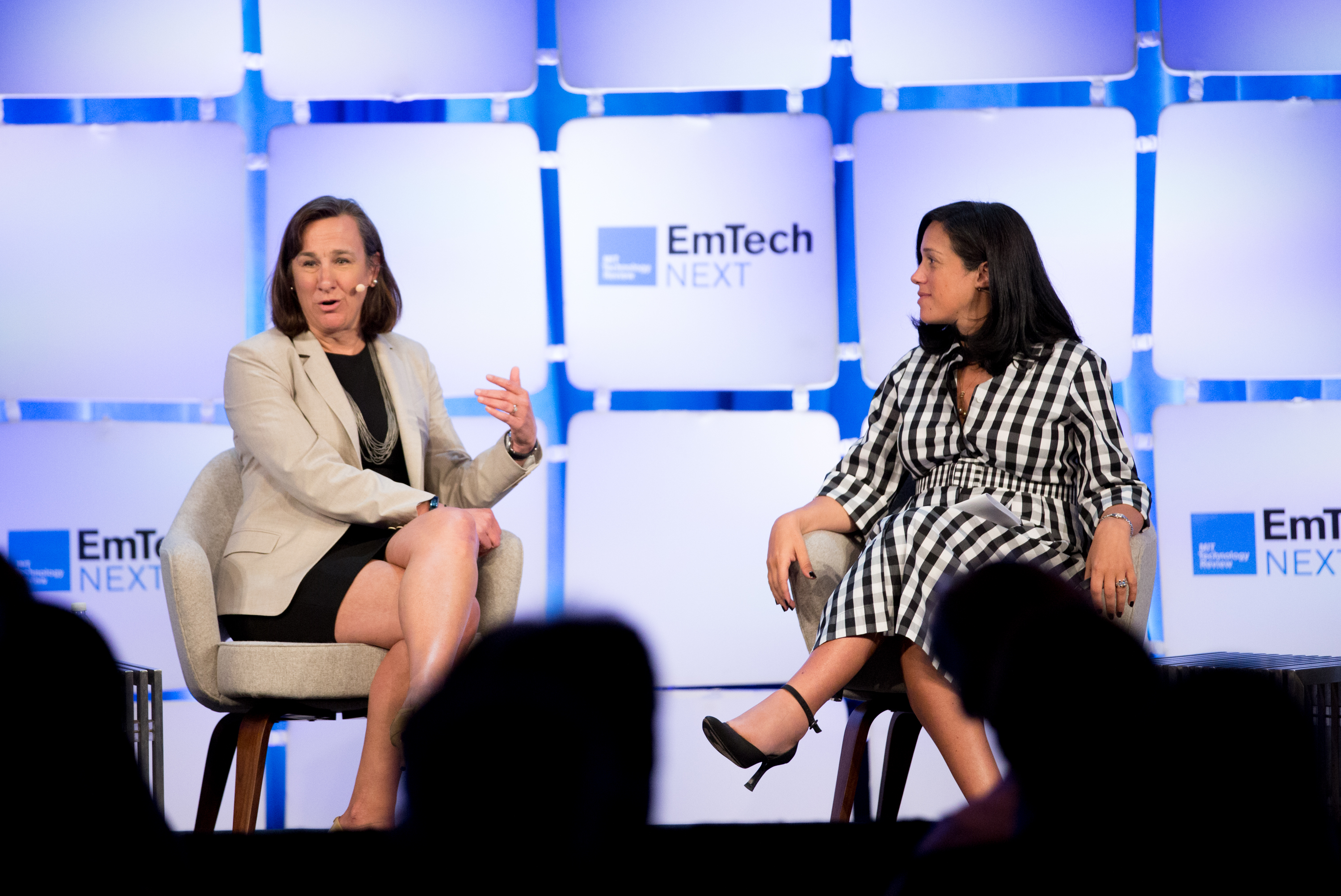Sponsored
Predicting the future of work: Preparing for an uncertain tomorrow

In association withDeloitte
AI, robotics and cognitive computing are advancing rapidly and will have a massive impact on how people do their jobs, eliminating some tasks done by humans altogether and significantly altering others. That makes the future of work a clouded, even ominous, horizon for many companies today.
One challenge, discussed at the recent EmTech Next conference, produced by MIT Technology Review, is hitting the right balance of technology and human skills. And that’s not easy for organizations eager to forge ahead with the latest and greatest tech. “The idea of people and machines working together is so important fundamentally to the future of this conversation because what we all bring to the table - our humanity, authenticity, and ability to understand and interpret, I don’t believe will ever be replaced by machines. It’s how we collaborate together that is really going to change the conversation and create the opportunity" said Deloitte Consulting Chair and CEO, Janet Foutty in a talk on the future of work with Deloitte Consulting’s US Human Capital Leader Erica Volini. Volini added, “We almost have to take our technology hats off and realize that this is as much a cultural shift, a mindset shift, an organizational shift, as it is about the newest thing happening in AI.”
At the conference, thought leaders weighed in on the totality of coming changes—some are well equipped and know what to expect; others have a way to go on the future-of-work voyage.
Read on for the results of this survey.
When answering how prepared their organizations are for the future of work, more than half reported that they are not well prepared or not prepared at all, with 42 percent reporting they’ve done limited preparation, and 9 percent saying they’ve done nothing to prepare.
Some 38 percent of respondents said that when ranking the macro forces causing disruption, lost jobs due to AI, cognitive computing and robotics was the chief concern.
When asked to name the aspects of the future of work that their organizations would prioritize, a majority of respondents—56 percent—said that how work gets done would get the most attention.
In answer to a question about the part of the organization that will feel the biggest impact from upcoming future-of-work changes—leadership, managers, employers, customers or suppliers—32 percent of respondents said employees.
If respondents could focus on one thing today to meet the challenges of the future of work, 43 percent reported they would upskill or reskill the capabilities of their workforces.
Adapting to a new mindset in the digital and cognitive world is the top challenge organizations will face on their future-of-work journeys, according to 36 percent of respondents.
Keep Reading
Most Popular
Large language models can do jaw-dropping things. But nobody knows exactly why.
And that's a problem. Figuring it out is one of the biggest scientific puzzles of our time and a crucial step towards controlling more powerful future models.
How scientists traced a mysterious covid case back to six toilets
When wastewater surveillance turns into a hunt for a single infected individual, the ethics get tricky.
The problem with plug-in hybrids? Their drivers.
Plug-in hybrids are often sold as a transition to EVs, but new data from Europe shows we’re still underestimating the emissions they produce.
Google DeepMind’s new generative model makes Super Mario–like games from scratch
Genie learns how to control games by watching hours and hours of video. It could help train next-gen robots too.
Stay connected
Get the latest updates from
MIT Technology Review
Discover special offers, top stories, upcoming events, and more.